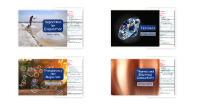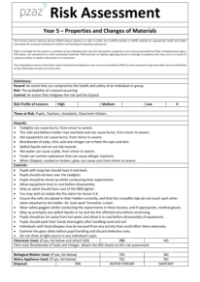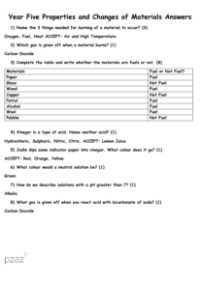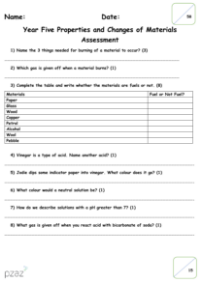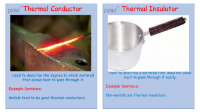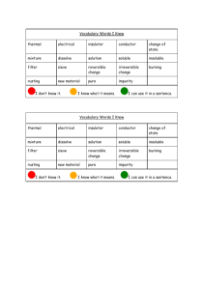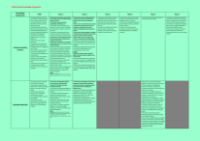Properties and Changes of Materials - Knowledge Organisers
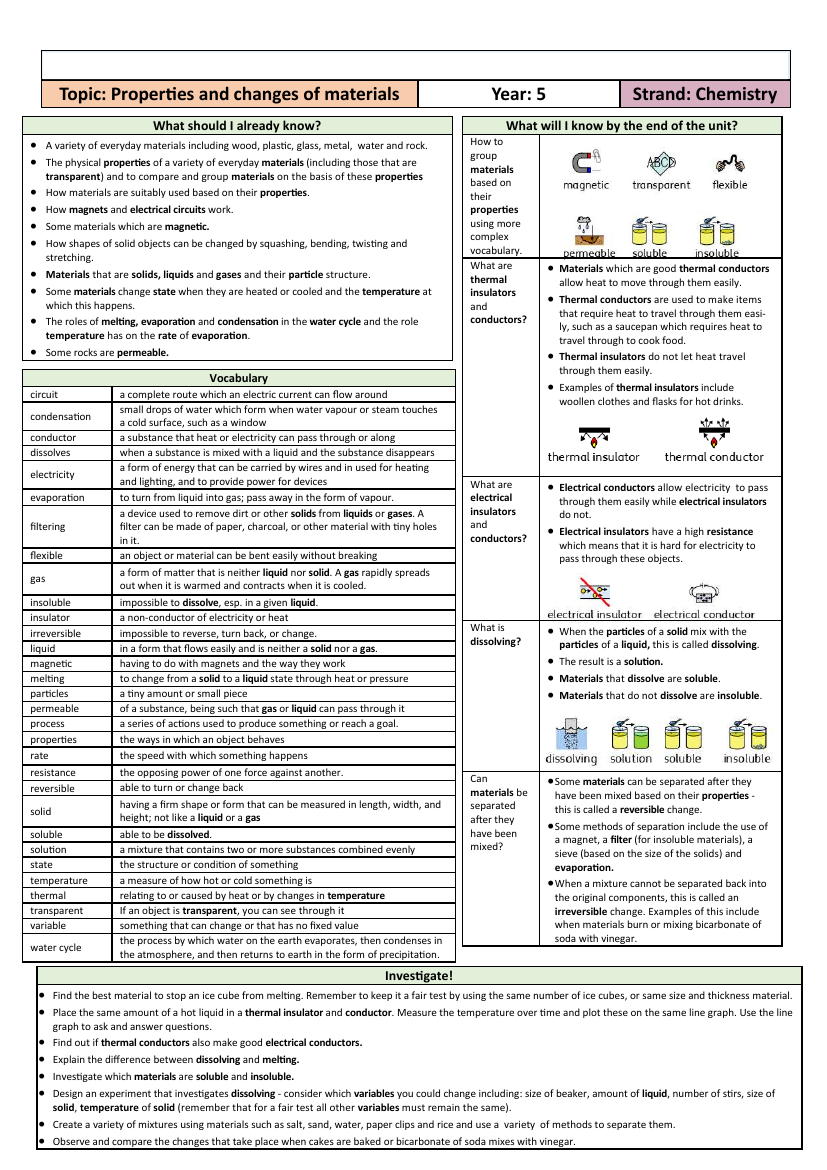
Year 5 students embarking on the Chemistry strand of their Science curriculum will delve into the properties and changes of materials. Prior knowledge required includes an understanding of everyday materials such as wood, plastic, glass, metal, water, and rock, as well as their physical properties, such as transparency. Students should be aware of how the properties of materials determine their use, the workings of magnets and electrical circuits, and which materials are magnetic. They will have explored how solid objects can be altered by squashing, bending, twisting, and stretching, and will have a grasp of the states of matter—solids, liquids, and gases—along with their particle structures. Additionally, they should know that materials change state under different temperatures and comprehend the roles of melting, evaporation, and condensation within the water cycle, including the effect of temperature on evaporation rates, and that some rocks are permeable.
The unit will build on this foundation, introducing more complex vocabulary such as 'thermal insulator', 'conductor', and 'soluble'. Through a series of investigative activities, students will discover the best materials to prevent ice from melting, understand the differences between thermal insulators and conductors, and explore the relationship between electrical and thermal conductivity. They will differentiate between dissolving and melting, learn which materials are soluble or insoluble, and design experiments to investigate dissolving. The unit aims to teach students how to group materials based on their properties, understand the concepts of electrical and thermal conductivity, and recognize the reversible or irreversible nature of material changes. By the end, they will be able to apply methods like filtering, sieving, and evaporation to separate mixtures and understand the science behind everyday phenomena like baking or the reaction between bicarbonate of soda and vinegar.
